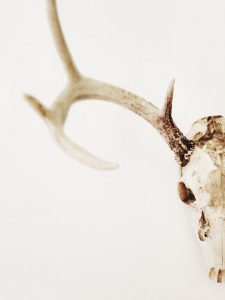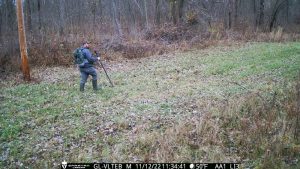Ann Arbor has a deer problem.
The urban center and home to the University of Michigan is overrun with whitetails, and city officials have been experimenting with a number of solutions to the problem. Last year, the city utilized state-sanctioned sharpshooters to trim the population with some success. In total, sharpshooters removed 63 deer from the city’s center but missed the expected target of 100 animals.
The removal or shooting of the deer caused a stir not only in Ann Arbor but across Michigan as other cities in the state followed suit, utilizing paid shooters to remove deer in urban areas. During the first year of Ann Arbor’s deer management program, hundreds of residents protested and sought legal action in hopes of ending the slaughter of the city’s whitetails.
In a move that is seen by some as kowtowing to the protesters, Ann Arbor will now be the first city in the state that will sterilize deer, following in the steps of Staten Island, who is currently sterilizing whitetail bucks in an effort to curb populations.
Later in 2017, the city will embark on their journey to capture and remove the ovaries of about 50 deer.
“The shooting of deer within the city limits, within city parks, shook many members, many community member’s sense of their home,” said Mayor Christopher Taylor. “It was inconsistent I believe with their notion of their community values.”
While the Mayor also announced that the city still plans to utilize the services of sharpshooters to address the deer problem, hunting groups from around Michigan are speaking out against the decision.
“If we have a problem with the deer population, what we do in Michigan is we hunt the excess deer, we use that venison, we buy licenses, which then fund the conservation of habitat and other wildlife species as well,” says Corey YoungDyke of Michigan United Conservation Clubs.
The fears sportsmen have about the newly-minted ideology is two-fold. Many in the hunting community are worrisome that these methods of population control will soon replace hunting across the United States. Additionally, the financial burden that comes with running these types of sterilization projects can be costly to the taxpayer.
The city has stated that they have budgeted close to $100,000 to pay for the sterilization of the 50 deer in 2017. Assuming they reach their target of 50 captures, that amounts to about $2,000/deer, and no venison donated to those in need.
During last year’s reduction, over 1,000 lbs of meat were donated to Food Gatherers to feed the hungry.
The Michigan Department of Natural Resources has stated that it stands with hunters but is curious as to how effective the sterilization solution will be to balancing the problem in cities such as Ann Arbor.
“We’re still going to be using hunting as our primary form of management across the state, and that’s always going to be our number one recommendation, even in a lot of these urban communities,” said DNR specialist Chad Stewart. “This is research, this is what decisions are made on, in managing urban deer and deer populations, but we have to have the flexibility to help accommodate certain situations because not every community is the same, and we can’t approach this on a cookie-cutter basis,” says Stewart. “It just doesn’t work that way.”




